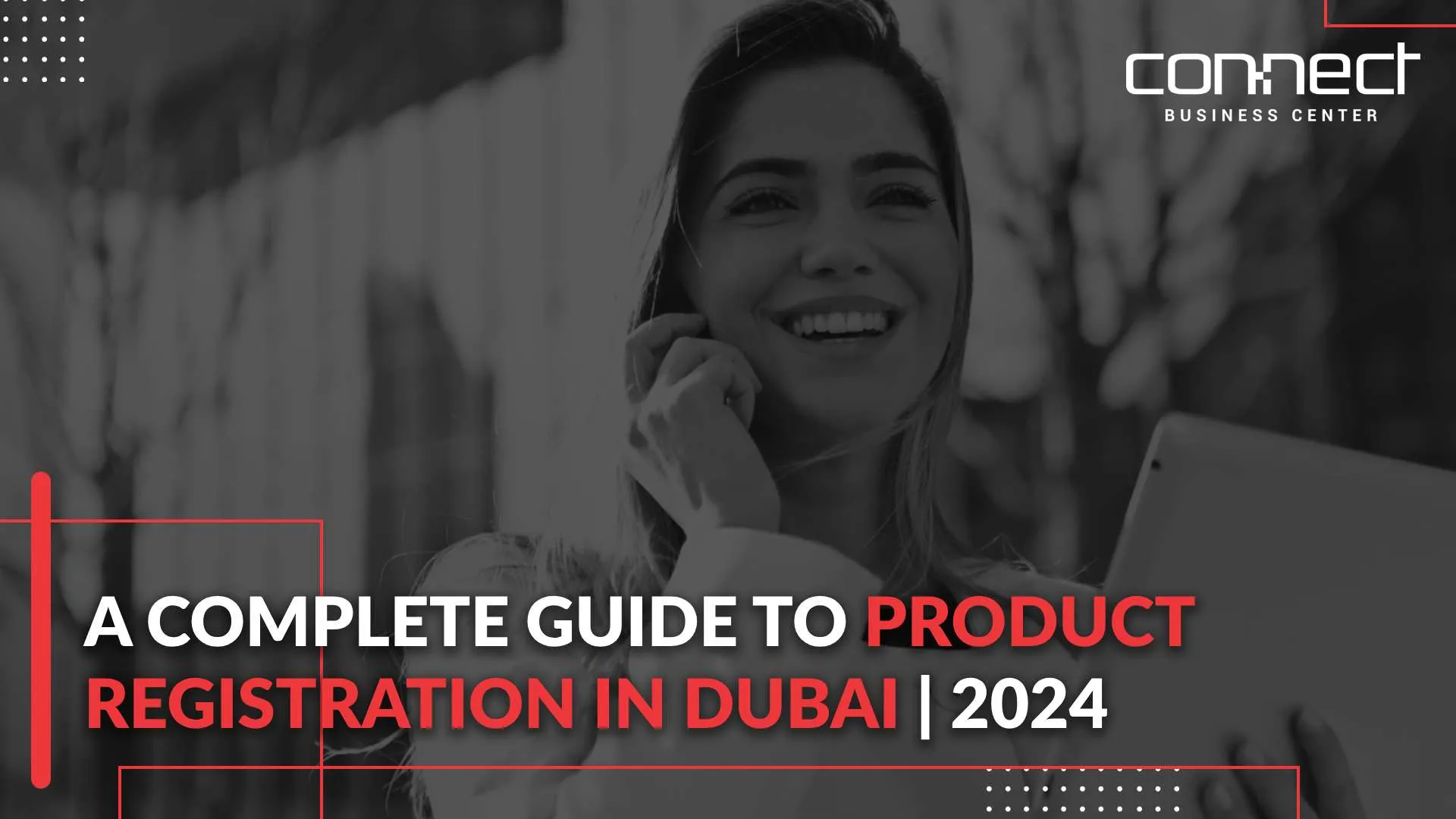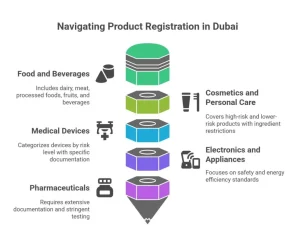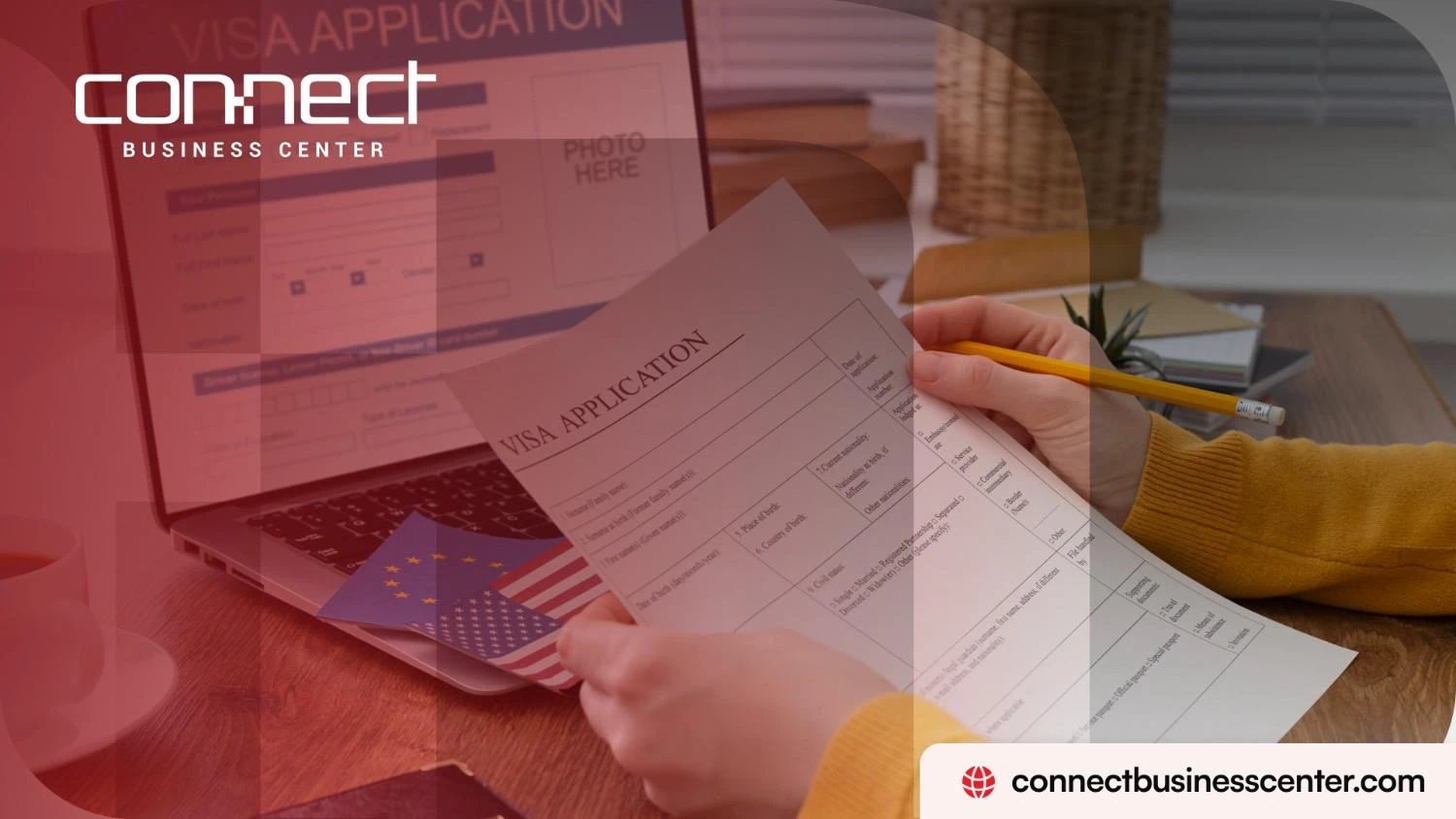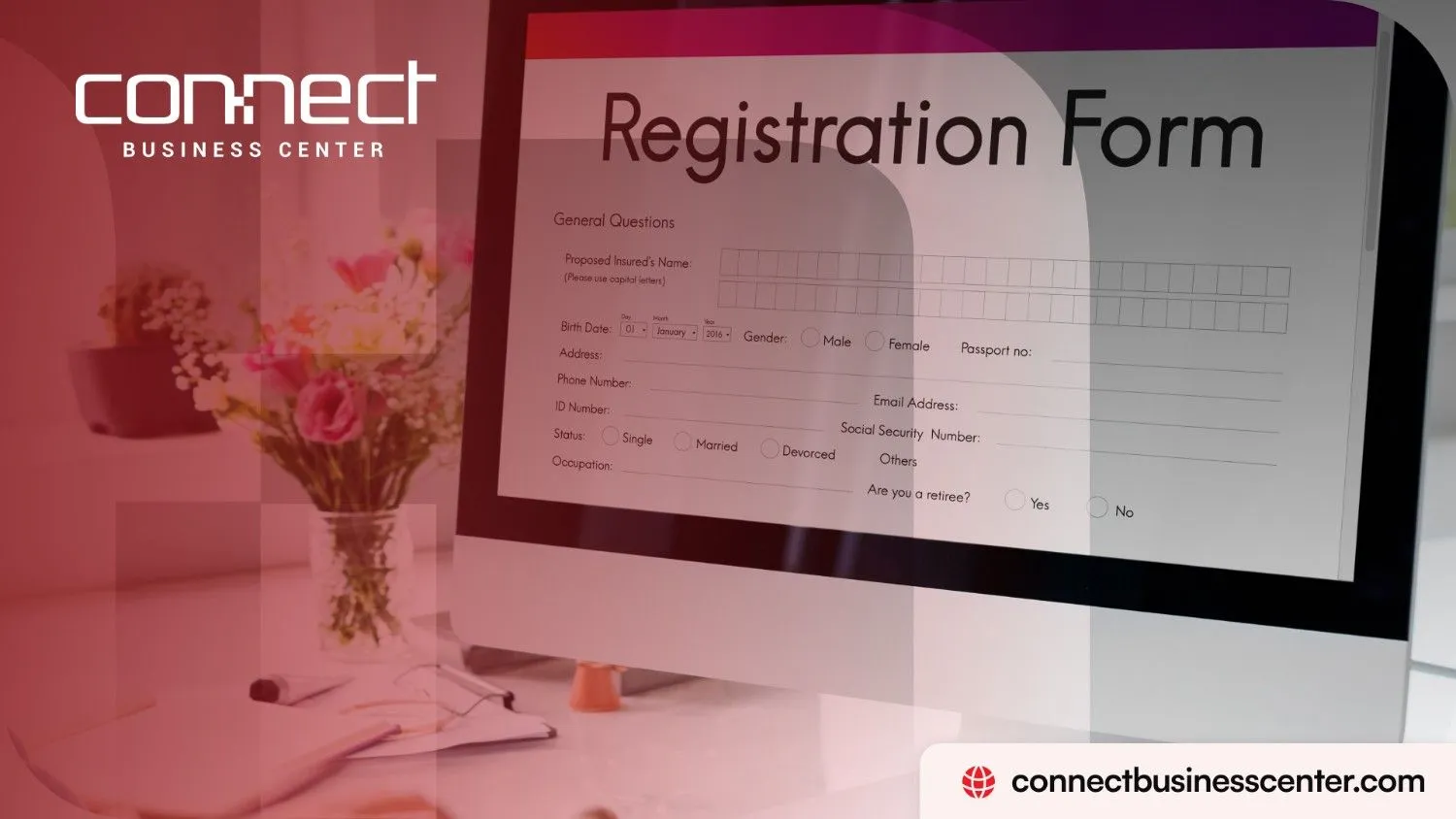Dubai, the epicenter of innovation and entrepreneurship, has grown into the biggest business hub in the Middle East. Certainly, having a very strategic spot, its economy is booming strongly to improve international business. Although the product registration in Dubai remains a stringent regulation for the evolving one, the rules governing the same city are becoming more specific over time.
In this article, we will cover the complexities of product registration in Dubai. Therefore, from discovering types of products that fall under this category to describing the particular steps in the process of product registration in UAE. It should be considered imperative to heed the statutes that have been established. Furthermore, companies have to meet strict quality and security standards How to Get ISO Certification in Dubai, UAE, and the customer is able to make a better choice.
Importance of Product Registration in Dubai, UAE
The product registration in Dubai is a significant activity that contributes effectively to securing consumers. Also, to facilitate fair market operating mechanisms and simplify trade operations for the emirate’s economy. Here is a closer look at its significance:
Ensuring Consumer Protection:
- Combating Counterfeits and Harmful Products: Product registration in Dubai is a border that protects market integrity and safety. Its purpose is to prevent trade in fake or inferior goods.
- Promoting Transparency and Informed Choices: The product would need to have labeling information that accurately depicts certain information. For instance, ingredients, expiry dates, and safety warnings to facilitate the consumers’ decision to go and choose what suits them perfectly based on their likes and needs.
Maintaining Fair Market Practices:
- Level Playing Field for Businesses: Product registration in UAE allows for a standardized and uniform set of rules and regulations governing all businesses in Dubai. Undoubtedly, the rules and regulations ensure that manufacturers consistently produce products of comparable quality and safety levels.
- Combating Unfair Competition: The government should adopt the mandatory product registration in UAE scheme as it will subsequently discourage businesses and traders from conducting illegal practices. As a result, this could harm products or consumers to have a competitive advantage.
Facilitating Trade:
- Streamlining Import, Export, and Distribution: Having the product registration certificate issued streamlines the import, export, and distribution throughout the Emirates, inside Dubai, as well as across the UAE. This means that the movement of goods and trade activities can be done more efficiently. Hence, it improves the economic growth of the emirate and also its competitiveness.
- Enhancing International Recognition: Through product registration in Dubai, your firm will ensure that it is sticking to the international quality and safety standards. On the other hand, it may give Dubai-based companies more recognition.
Types of Products Requiring Registration
The Dubai Municipality keeps a wide range of brands, goods, and/service categories. They must comply with the legal product registration in Dubai before entering the market, manufacturing them, or selling them within the emirate. This diverse range of products encompasses various sectors, each with its specific regulations and considerations:
Food and Beverages
Beyond the general categories mentioned earlier, the food and beverage business often implies that product registration in Dubai involves specific regulations and considerations for each product type:
- Dairy Products: Among the quality control measures ensured for milk, cheese, yogurt, and other dairy products. We are also ensuring the freshness, hygiene, and specific fat content and composition standards. Descriptions of milk involve its pasteurization method, its geographical source, and possible added ingredients.
- Meat and Poultry Products: Hygiene regulations at slaughterhouses and meat processing plants follow strict rules. Above all, product registration in UAE needs to meet the certification standards of the law. The cut of meat and origin have to be clearly labeled. As well as the processing methods and other information, like inclusions and additives.
- Processed Foods: Consumption of canned goods, snacks, bakery products, as well as foods with processed ingredients like preservatives, forms part of standard labeling describing ingredients, nutritional facts, and allergens. Furthermore, the exact rules for additions, preservatives, and suitable processing techniques may be determined separately in some cases.
- Fruits and Vegetables: The import of selected fruits and vegetables, however, is subject to registration. Also, the quarantine controls and sanitary certificates are crucial.
- Beverages: Just like alcoholic drinks, non-alcoholic drinks are also subject to this registration process. Specified regulations will cover alcohol labeling content, production processes such as sugar addition procedures, and health warnings that will apply to ingredients like sugar.
Cosmetics and Personal Care Products
In Dubai, the registration procedure of such products is managed by the Consumer Products Safety Section (CPSS). Following this, they ensure compliance with the standard regulations. Next, we will give you an overview of the classification:
- High-Risk Products: Products meant for use around the eyes, mucous membrane, or broken skin may experience more stringent testing. This is to assess potential irritation, allergies, or other adverse effects.
- Lower-Risk Products: Lotions, creams, and other similar products that have a lower risk may require comparatively less rigorous testing, while safety standards and ingredients still need to be complied with.
- Restricted Ingredients: There is a long list of substances that fall into the category of being unhealthy or even tremendously dangerous to health and are therefore not allowed in cosmetic formulations.
Required Documents:
The specific documents needed vary depending on the product category and level of risk, but generally include:
- Completed application form
- Product information and specifications
- Marking important information in Arabic and English. For instance, ingredients, expiry date, and any warnings or instructions for use.
- The Certificate of Analysis (CoA) provided by a credible lab affirms the ingredient throughout, as well as its respective concentrations.
For high-risk products:
- Non-clinical data safety profiles were obtained from reputable and accredited laboratories.
Review and Approval:
- The team of CPSS reviews the application and documentation, checking the law, regulations, and standard safety.
- The process could be a request for more information or to explain some details regarding ingredients, labeling, or safety terms.
- The approval will go between three and four months, or a bit more. That ultimately depends on how complicated the product is and if there is a need for extra testing.
Medical Devices
In the UAE, medical devices are held to stringent rules to prevent patients from any harm and attain better efficacy. Consequently, ensuring it is used in a safe way and gives the best result to the patients. The registration process is overseen by the Emirates Health Services (EHS) and involves several key steps:
Classification:
The first step is to categorize your medical equipment based on the risk it adds to your patients. The EHS classifies devices into three categories:
- Low Risk – Class I: Such devices are quite harmless. They are characterized by small-detail registration requirements, unlike those that are common in the healthcare field.
- Medium Risk – Class II: These types of devices are relatively risky and may need further study. Performance assessment and two-way feedback (certified by notified bodies) for its conformity with the intended purpose.
- High Risk – Class III: Such medical gadgets can endanger the patients and therefore need to have a quality control process. This includes intense testing, clinically assessed, and with quality management systems at the highest regulated level.
Required Documentation:
The specific documents needed vary based on the device classification, but generally include:
- Completed application form
- Product data and technical details.
- Certificate from the Country of Origin.
- Listing Arabic and English on the tags with the crucial information.
- Risk management plan
For Class II and III devices:
-
- Design dossier
- Clinical evaluation report
- Quality management system documentation
- Application Process:
- Register as a member on the EHS online portal
- Fill out the opening form online and submit all necessary documents.
- Pay the due amount. This depends on the type and complexity of the unit.
- Review and Approval:
- The authorities will review the process for the application and documentation issues with regulations or safety standards.
Electronics and Appliances
ESMA, which is the Emirates Authority for Standardization and Metrology, has the responsibility to ensure product safety and the requirements of energy efficiency. Here is a breakdown of the steps:
- Determine the particular requisites of your product that concern the classification and the purpose of the product. Follow the ESMA website’s product classification guide:
- Power supplies and household appliances typically need certification from an authorized testing body which ESMA has an agreement to recognize. Following this, the certificates of conformity are evidence of the business’s adherence to the safety requirements of the international or regional standards of the particular product category.
- Check Energy Efficiency Compliance. For example, in some cases, it stipulates that refrigerators, washing machines, and air conditioners satisfy energy efficiency requirements. Such stipulation may be equivalent to the testing and the issuance of certificates of energy efficiency by accredited laboratories.
- Labeling must follow the specification, such as the Arabic and English translations. Indeed, the more readable and straightforward the product’s designs are, the more time customers will be able to spend on their product and end up buying it.
- Following registration and filling out all the online application form sections of the relevant product category, attach the necessary data. The following documents are required:
-
- Features and specifications
- Safety certificates
- The informational part provides a guarantee of the energy efficiency certificate (if registerable)
- Technically, documentation or manuals (e.g., user manuals)
- Pay the fees to be applicable after the application period has ended. The fees will vary from product category and complexity.
- Electronically collect the application through the portal.
- The ESMA reviews the application presented and the documentation provided to meet the regulatory compliance and safety standards. This process may involve requesting additional information or clarification regarding documentation or testing procedures. The approval can range from weeks to months.
Pharmaceuticals
The Ministry of Health and Prevention (MOHAP) enforces the most stringent registration procedures for the pharmaceutical industry due to its potential impact on human health:
- Extensive Documentation: Qualifying goods should transmit comprehensive documentation, including the product constitutions, the manufacturing processes, the quality control measures, and clinical trial data for some drug substances.
- Stringent Testing Requirements: Thorough testing is highly necessary and is a matter of course to rule out any possible risks of using these products. That can consist of the clinical trials carried out and the data submitted to MOHAP for evaluation.
- Licensing Procedures: Only those official health institutions and health facilities can import and distribute these drugs within the UAE’s boundaries. To acquire a license, an organization must meet certain conditions, followed by mandatory compliance checks and audits carried out by MOHAP authorities.
Through the knowledge of the particular rules and features of all the goods categories, the entrepreneur, as well as private individuals, could simply go through the quality process in Dubai.
Step-by-Step Guide to Product Registration in Dubai
Stick to these step-by-step instructions and take advantage of the official resources offered by Dubai Municipality, then you are very likely to get the whole picture of the product registration process in Dubai, and any barrier becomes more manageable.
It is advisable to look for more information through relevant authorities or professional service providers for understanding how to overcome the difficult nature of the process of product registration in Dubai and the intricate rules regarding certain product categories, especially for those that have very strict regulatory rules, such as medicinal devices and pharmaceuticals.
It is of critical importance to be vigilant regarding any changes or amendments related to product registration laws, as continuous compliance is the main principle.
A. Preparing Documentation
Documents required for product registration in Dubai are different, depending on the specific categories of products. However, some general documents are typically required for most products:
- Application Form: Used online by filling out the form below or the paper-based form that can be downloaded from the Dubai Municipality website.
- Product Information: The usage of specifications, ingredients (as is the case for food and cosmetics), and intended product use are all explained in great detail.
- Technical Specifications: Instructions, illustrations of components and the system, and other technical literature.
- Certificate of Origin: This is given by the competent authority in the country of origin.
- Free Sale Certificate: Issued by the competent authority in the country of origin, confirming that the product is easily obtainable on the free market.
- Labeling: Samples of product label descriptions in both Arabic and English with 100 % accuracy.
- Power of Attorney: If applying through a third party, a power of attorney authorizing them to act on your behalf.
Additional documents may be required depending on the product category, such as: Additional documents may be required depending on the product category, such as:
Food Safety Certificate: This is especially true for food and beverage products, and no less so for textiles.
Safety Data Sheet (SDS): To save the chemicals and dangerous substances. Create your unique body paragraph for this sample outcome: The increasing use of ozone-depleting chemicals and hazardous materials poses a severe threat to environmental quality.
Clinical Trial Data: For example, some of the drugs, the FDA also approves new drugs based on a certain category of drugs.
Conformity Assessment Reports: For instance medical device or an electronic device of a specific nature.
We recommend that you seek information on the Dubai Municipality website or local authorities to obtain the most current and recent information for the product category you choose.
B. Application Process
- Register with the Dubai Municipality portal: Sign up and browse the online platform.
- Complete the online application form: Contact customers and make sure they can get all related information, and attach the necessary documents.
- Pay applicable fees: The cost of the goods basically fluctuates according to the product type and the difficulty of manufacturing.
- Submit your application: Please go to the portal, generate electronic documents, and submit the completed application and supporting materials.
C. Product Testing and Evaluation
Only some products need to undergo obligatory tests. On the other hand, those authorities may demand, based on the product’s category and danger stakes, that testing be carried out by certified labs approved by Dubai Municipality. This could involve:
- Safety testing: Gauging the risks of the goods that could result from their use.
- Performance testing: Defining the product’s capability and if on target with claims.
- Chemical testing: Establishing the product formula compliance by analyzing its ingredients and components.
- Testing criteria depend on many factors, including the product’s complexity and the required tests.
D. Review and Approval
During the process of approving applications, the Dubai Municipality technical teams will evaluate the design and survey data to make sure they are in conformity with the regulations and safety requirements. This process may involve:
- Requesting additional information or clarification: In case any information is missing or unclear, they could ask the officials responsible to clarify details and more.
- Site inspections: Sometimes, sufficient attention is paid to analysis and production sites, which is confirmed by an element of physical inspection.
- The period for confirmation can differ if the product consists complex design or there is additional information that is supposed to be delivered.
E. Issuance of Product Registration Certificate
The Dubai Municipality issues registration certificates for approved products after the review and approval procedure. This certificate typically includes:
- Product details: Information on name, description, and specification of the corresponding product, which is yet to be registered.
- Validity period: The feasibility of its registration for a longer period.
- Specific conditions: Registration and renewal may have concrete guidelines, inclusive of time limits or similar regulations.
- A valid product registration certificate needs to be maintained in order to remain in the legal requirements of marketing and distributing the goods.
Cost & Duration of Product Registration in Dubai
| Category | Approx. Fee Range | Processing Time |
|---|---|---|
| Food & Beverage | AED 500–2,000 | 2–3 weeks |
| Cosmetics | AED 1,000–3,000 | 3–4 weeks |
| Medical Devices | AED 2,500–5,000 | 6–8 weeks |
| Electronics | AED 1,500–4,000 | 4–6 weeks |
| Pharmaceuticals | AED 3,000–5,000 | 8–12 weeks |
Conclusion
The meaning of product registration in Dubai is as important as any other factor for businesses aiming to come to be or expand their market in Dubai. This product registration system is of great importance in assuring that the city becomes and remains a successful and trustworthy center for business activity. Consumer protection, fair competition in trade among businesses, and transactions all greatly help the development of the economy.
By delivering your products to the market through established regulations, you can explore the opportunity to penetrate the vast market of Dubai. Besides, you are a part of that community that gives continuity to the reputation of a safe source for the goods and services that are top-notch.
Bearing in mind that this guidance is only to start with, seek expert support from regulatory departments or other relevant authorities. Please let us know if you have doubts along the way by reaching out for assistance. Just contact our lines of experts whenever you need help, and you will definitely get the right kind of feedback based on your product and situation.
FAQs for Product Registration in Dubai
Q1. How long does product registration take in Dubai?
Typically between 2–8 weeks, depending on product type and complexity.
Q2. Can I sell products in Dubai without registration?
No. It’s a legal requirement — selling unregistered products can lead to fines or business suspension.
Q3. What is Montaji?
Montaji is the official Dubai Municipality portal for registering consumer products like cosmetics, food, and personal care items.
Q4. Can foreign companies register products in Dubai?
Yes, but you must have a local UAE representative or agent to apply on your behalf.




